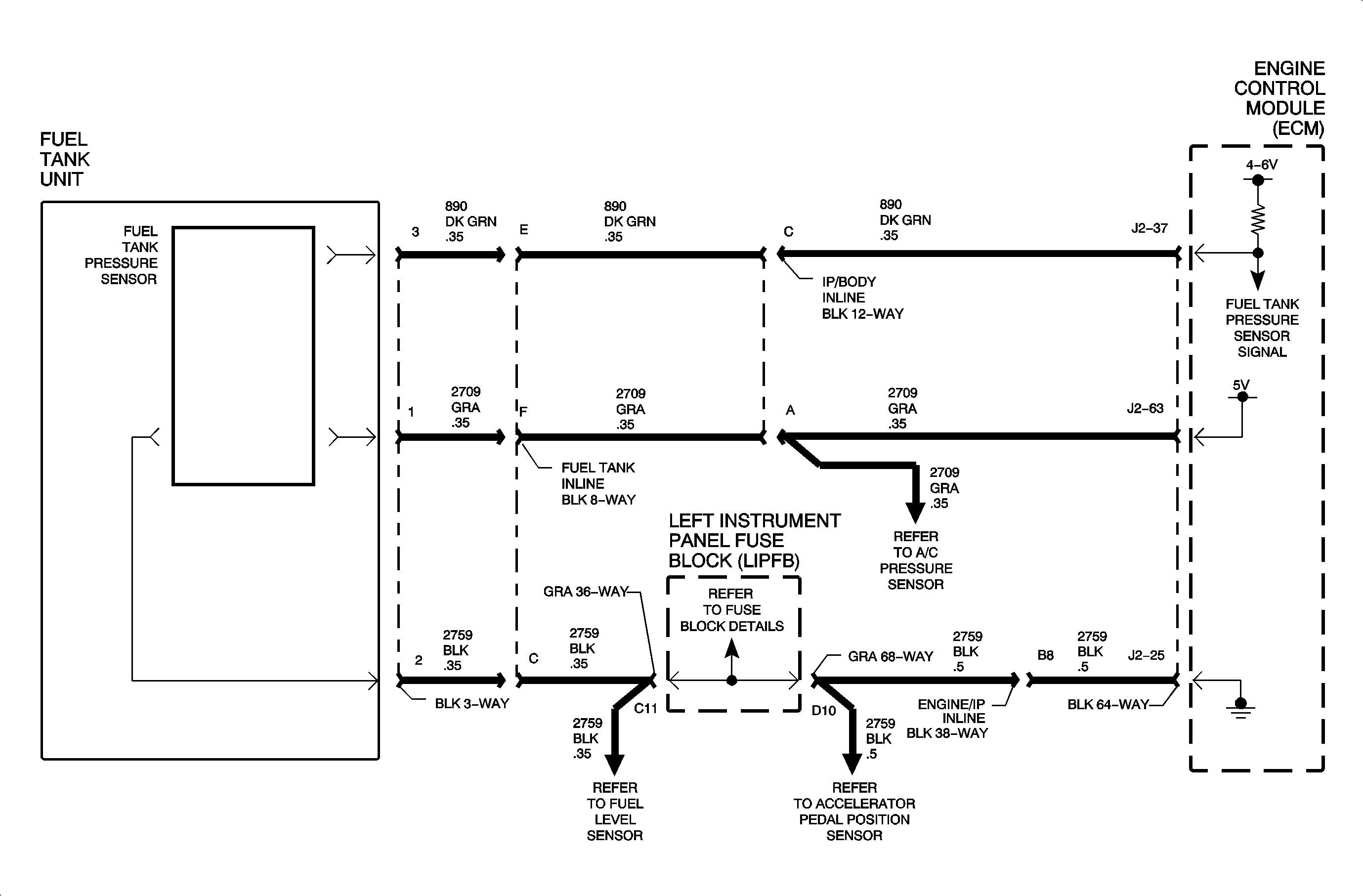
Circuit Description
The evaporative emission (EVAP) system is used to store fuel vapors as to reduce
the amount of unburned fuel from escaping into the atmosphere. The EVAP system consists
of the EVAP canister, fuel tank pressure sensor, EVAP lines and hoses, EVAP purge
solenoid (normally closed), EVAP service port, EVAP vent solenoid (normally open)
and fuel tank. The ECM monitors the EVAP system for circuit faults in the fuel tank
pressure sensor, EVAP purge solenoid and EVAP vent solenoid circuits. The ECM also
monitors the EVAP system for small and large leaks. During the DTC P0440 diagnostic,
the ECM monitors the fuel tank pressure sensor for an atmospheric pressure reading
when all of the DTC parameters have been met. The ECM will then command the EVAP
vent solenoid On (close valve) and command the EVAP purge solenoid to a fixed duty
cycle (pulses valve). The ECM will let the pressure drop in the fuel tank for a certain
length of time, after which it will turn Off the EVAP purge solenoid. If a correct
amount of vacuum is achieved, the ECM will run the DTC P0455 diagnostic, which will
monitor the decay in vacuum of the sealed system over a calibrated amount of time.
DTC P0455 sets when the vacuum decay is greater than the calibrated amount for a certain
length of time due to a large leak.
DTC Parameters
DTC P0455 sets when the vacuum decay is greater than the calibrated amount for
a certain length of time due to a large leak when:
| • | Engine load less than 35%. |
| • | MAP is greater than 40 kPa. |
| • | Battery voltage is greater than 11.0 volts. |
| • | ECT at engine startup is between 8°C and 75°C (46° and 167°F). |
| • | IAT is between 8°C and 50°C (46° and 122°F). |
| • | Long term fuel cells not cleared (if cleared, engine must run longer than
16 minutes and 45) · Fuel level between 1.3 and 12.7 gallons (5-48 liters). |
| • | Altitude less than 9842 ft. |
| • | No battery voltage, ECM internal fault, ECT, EGR, EVAP purge control,
EVAP vent control, fuel tank pressure, HO2S, IAC, MAP, misfire, TP or VSS DTCs have
been set. |
DTC P0455 diagnostic is run once (usually for 40 seconds if no faults
exist) during the EVAP diagnostic test once the above conditions have been met.
P0455 is a (type B) DTC.
Diagnostic Aids
Important: The ECM uses the fuel tank pressure sensor
to detect the vacuum decay of the EVAP vent solenoid diagnostic. Make sure the fuel
pressure sensor is not skewed by verifying FUEL TANK PRESS. SENSOR on Scan tool is
between 2.35 and 2.85 volts with ignition On and fuel cap removed.
Check the following for possible causes of large leak:
| • | Missing, improperly installed (loose) or faulty fuel cap. |
| • | Disconnected or damaged EVAP vent hose. |
| • | Disconnected, damaged, or blocked fuel tank vapor lines. |
| • | Damaged or leaking EVAP canister. |
| • | EVAP service port valve leak. |
| • | Stuck open EVAP purge solenoid. |

